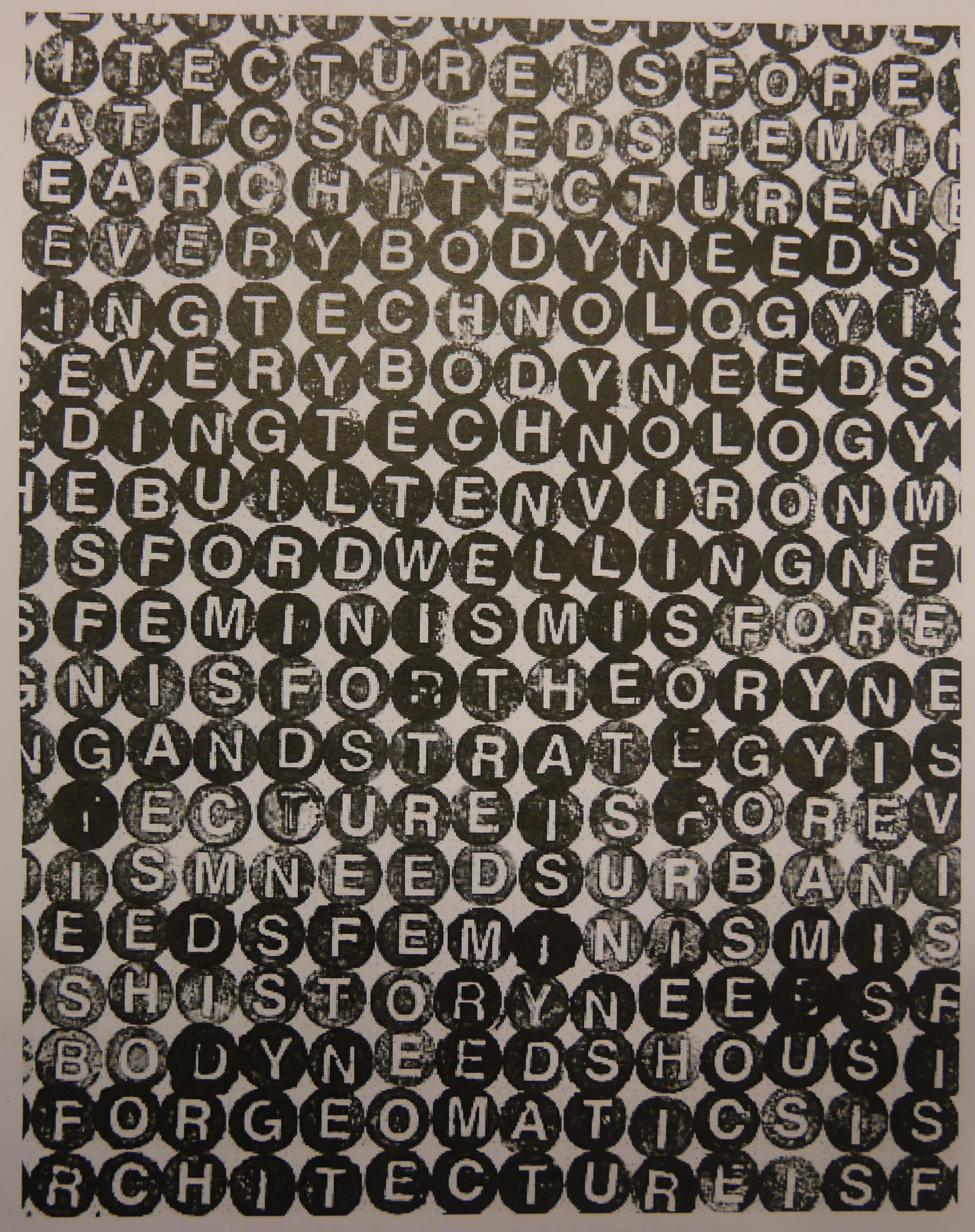The TU Delft Feminists mission statement is packed full of ideals. Over a meal on Thursday, 27 October, they got together with others interested in the mission to think about how to achieve them. It proved slightly less intense than the activism seen earlier in the year.
It was in May that the TU Delft Feminists first made their voices heard. There was a symposium about the architect Jane Jacobs featuring a panel made up of men only. The American Tumblr-blog ‘Congratulations on your all-male panel’ had something to say about this, sparking a discussion in Architecture and the Built Environment about the position of women in the faculty. Why are there so few women professors when half of the students are women? And why are women paid less for the same work?
But the symposium still went ahead with the original line-up, so a group of students took action. They brought chairs into the room labelled with the names of women who might have been invited. This made organiser and assistant professor Roberto Rocco, speaker at Thursday’s brainstorming session, ‘very distressed’. “But the chairs became part of the symposium, and we were able to discuss the issue.”
Sensitised
Rocco spoke after Prof. Marja Elsinga (chair of the TU Delft women’s network Dewis) and associate professor Susanne Komossa. Whereas they used presentations and statistics to show what is wrong at TU Delft and called for an action plan, Rocco appealed to the emotions.
He admitted that his eyes had been opened. He had begun to recognise patriarchal structures and been sensitised to the ‘implicit gender prejudice that is interwoven in our culture, language and the way we talk about people’. “You want to be taken seriously. As a Latin-American man in Europe, I know that feeling. Although seeing the chairs may have been difficult for me, it was effective. But I fear that this meal may not prove so effective to people who are not open to this message.”
Two of TU Delft’s original feminists, Architecture students Brigitte O’Regan and Charlotte Ros, nodded in agreement. Earlier, O’Regan had explained that their group consists of 17 active members and 300 followers. They aim to widen the theme of feminism to be more inclusive, through humour, debate, but also action. Ros explained her ‘practical jokes’ approach. Across the faculty, she leaves little messages behind her, to open up debate about ’the structures we live in’. ‘How many female architects do you know?’ she wrote on toilet doors, for example.
Pace of change
The aim of TU Delft Feminists, according to their mission statement, is to change structures and cultures. But how do you achieve that? After the meal and the speeches, everyone – both men and women – considered this question.
Although there was some awkwardness in the conversations, the result was a long wish-list: equal pay, a diversity officer, quotas, gender awareness-raising and the inclusion of references to female architects in the curriculum, a buddy system for young female staff, longer paternity leave. Opinions differed on the pace of change. One said that it takes time to change cultures. Unacceptable, said another. “That would mean that I can never become a professor.”



Comments are closed.